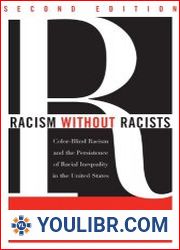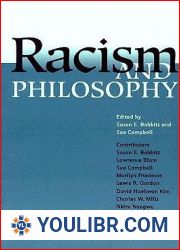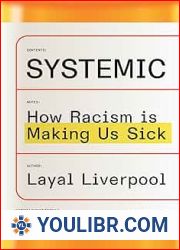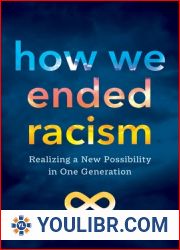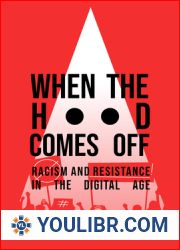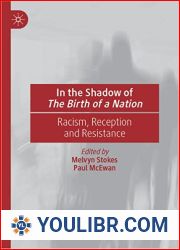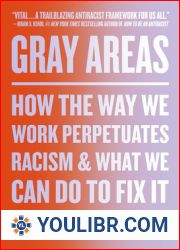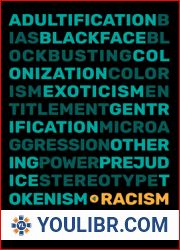
BOOKS - HISTORY - Racism without Racists Color-Blind Racism and the Persistence of Ra...

Racism without Racists Color-Blind Racism and the Persistence of Racial Inequality in the United States, 2nd edition
Author: Eduardo Bonilla-Silva
Year: 2006
Format: PDF
File size: 1 MB
Language: ENG

Year: 2006
Format: PDF
File size: 1 MB
Language: ENG

The book "Racism without Racists: Colorblind Racism and the Persistence of Racial Inequality in the United States" by Eduardo Bonilla-Silva provides a comprehensive analysis of the complex and evolving nature of racism in the United States. The author argues that traditional notions of racism, which rely solely on intentional acts of discrimination, are insufficient for understanding the persistence of racial inequality in contemporary society. Instead, he posits that colorblind racism, or the denial of racial discrimination and the belief that we live in a post-racial society, is a more accurate reflection of the current state of race relations in America. Through a detailed examination of various social, economic, and political factors, Bonilla-Silva demonstrates how colorblind racism perpetuates racial disparities in education, housing, employment, health, and criminal justice. He also explores the ways in which colorblind racism intersects with other forms of oppression, such as classism and sexism, to further entrench racial inequality. The book begins with an overview of the historical context of racism in the United States, from the early days of slavery and Jim Crow laws to the present day. Bonilla-Silva argues that while legalized segregation has been dismantled, systemic racism continues to thrive, manifesting in subtle yet powerful ways. He contends that colorblind racism is a product of the civil rights movement's success in achieving legal equality, which has led many to believe that racism no longer exists. However, this denial of racism obscures the ongoing reality of racial inequality and hinders efforts to address it effectively.
В книге Эдуардо Бонилья-Силва «Расизм без расистов: расизм с блинд-цветом и сохранение расового неравенства в Соединенных Штатах» представлен всесторонний анализ сложного и развивающегося характера расизма в Соединенных Штатах. Автор утверждает, что традиционные представления о расизме, которые опираются исключительно на преднамеренные акты дискриминации, недостаточны для понимания сохранения расового неравенства в современном обществе. Вместо этого он утверждает, что бесцветный расизм, или отрицание расовой дискриминации и вера в то, что мы живем в пострасовом обществе, является более точным отражением нынешнего состояния расовых отношений в Америке. Путем детального изучения различных социальных, экономических и политических факторов Бонилья-Силва демонстрирует, как бесцветный расизм увековечивает расовые различия в образовании, жилье, занятости, здравоохранении и уголовном правосудии. Он также исследует способы, которыми колорблинд-расизм пересекается с другими формами угнетения, такими как классизм и сексизм, для дальнейшего укоренения расового неравенства. Книга начинается с обзора исторического контекста расизма в США, начиная с первых дней рабства и законов Джима Кроу и до наших дней. Бонилья-Сильва утверждает, что, хотя легализованная сегрегация была ликвидирована, системный расизм продолжает процветать, проявляясь тонкими, но мощными способами. Он утверждает, что окрашенный в черный цвет расизм является продуктом успеха движения за гражданские права в достижении юридического равенства, что заставило многих поверить в то, что расизма больше не существует. Однако это отрицание расизма затемняет текущую реальность расового неравенства и препятствует усилиям по его эффективному решению.
Il libro di Eduardo Bonilla-lva, «Razzismo senza razzismo: razzismo con il colore blind e la persistenza della disuguaglianza razziale negli Stati Uniti», fornisce un'analisi completa della natura complessa e in evoluzione del razzismo negli Stati Uniti. L'autore sostiene che le nozioni tradizionali di razzismo, basate esclusivamente su atti di discriminazione intenzionali, non sono sufficienti a comprendere la persistenza della disuguaglianza razziale nella società moderna. Invece sostiene che il razzismo incolore, o la negazione della discriminazione razziale e la convinzione che viviamo in una società post-razziale, sono un riflesso più preciso dello stato attuale delle relazioni razziali in America. Attraverso uno studio approfondito di diversi fattori sociali, economici e politici, Bonilla lva dimostra come il razzismo incolore perpetui le differenze razziali nell'istruzione, nell'alloggio, nell'occupazione, nella sanità e nella giustizia penale. Sta anche esplorando i modi in cui il colorblind-razzismo si incrocia con altre forme di oppressione, come il classismo e il sessismo, per radicare ulteriormente le disuguaglianze razziali. Il libro inizia con una panoramica del contesto storico del razzismo negli Stati Uniti, dai primi giorni di schiavitù e leggi di Jim Crowe a oggi. Bonilla lva sostiene che, sebbene la segregazione legalizzata sia stata eliminata, il razzismo sistemico continua a prosperare in modi sottili ma potenti. Sostiene che il razzismo dipinto di nero è il prodotto del successo del movimento per i diritti civili nel raggiungere l'uguaglianza legale, che ha portato molti a credere che il razzismo non esista più. Tuttavia, questa negazione del razzismo oscura la realtà attuale della disuguaglianza razziale e ostacola gli sforzi per affrontarla efficacemente.
''







